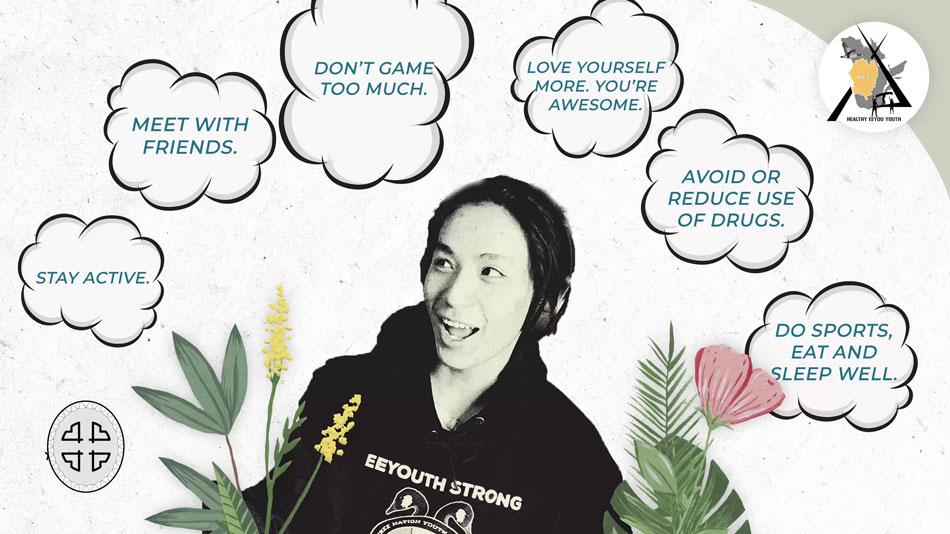Youth anxiety
Anxiety is one of the most common mental health issues. We’ve all experienced some level of anxiety at one point or another in our lives. But what is anxiety and what can we do about it?
Basically, our bodies have an emergency mode, where the brain tells the body to get ready to react to a threat.
Anxiety is a reaction by which human senses, evaluate, anticipate and respond to signs of stress. It is actually essential for our lives to have some level of anxiety from time to time.
When it is manageable, it gets us out of our comfort zone and push our limits, which helps us evolve, like meeting new people, trying a new activity, etc.
But it can also be negative and become problematic when the person has trouble overcoming it. it can come from intense and strong experiences that are hard to deal with.
We have 3 hard-wired responses to threats: Fight, Flight and Freeze.
When your brain detects a threat, it sends a hormone called cortisol, which tells your body to switch to “super hero mode”:
- Your heart starts pacing.
- Breathing increases to maximize the oxygen level in your blood, this is why it can feel like we have difficulty breathing.
- More blood flow goes to your muscles, which can make your muscle feel tense or even shaky. By doing so, less blood is left for other systems like your digestive system. This is why anxiety can cause stomachaches (Sfx: low pitch rumble)
- You can get sweaty, and get a dry mouth.
- Your brain starts racing to find a quick solution.
For example: In the bush, if you encounter a bear, these reactions would help you survive, but today, these reactions would not be very helpeful for most of every day life’s stressful situations.
While this reaction is healthy for a short period of time, it can be very difficult to bear, if not controlled, over a long period of time.
Other symptoms can show up such as:
- Fear, constant worry (Looping thoughts that you feel you don’t have control on. Or constantly imagining the worst-case scenario)
- Difficulty to concentrate
- Panic attacks
- Being cranky
- Avoiding public spaces (like school, or the store)
- Isolating yourself from others
When the weight is too big to carry, some people might deal with that in an unhealthy way.

How to help
If you, or a loved one goes through an anxiety episode, there are many ways to help.
- The first thing is not to judge, and to listen.
- To the person experiencing a panic attack, it can be a very scary experience.
- Instead, help them seek professional help.
Keep in mind that that feeling will pass
Being aware of it is an important step towards controlling it.
- Stay active and keep yourself busy
- Stay connected with your friends and family through technology
- Reduce your screen time
- Create a new routine and find a balance between all your activities
- Be kind to yourself
- Avoid or reduce use of alcohol or drugs
- Take care of your body by practicing regular physical activity, eating well and sleeping enough.
- Go out to the Land, where the sensory stimulations are more subtle.
You can bounce back from anxiety. People who deal with anxiety can be productive and happy. Anxiety does not make you less of a person, it does not affect your worth or what you can offer. Remember anxious is how you feel, not who you are.
Anxiety is normal, but if it is overwhelming, and you constantly feel anxious it might be time to seek for help.
Asking for help isn’t a sign of weakness: it means that you have the strength and awareness to gain control over your own mind and face the source of stress.
Anxiety is a common problem many people face, so do not hesitate to reach out to friends, family, Youth Outreach workers, CNYC, CMC, traditional healers, Elders or health professionals.
Support
Wiichihiiwaauwin (Mental Health) Helpline
Service available 24/7. Cree speakers and Elders are available upon request
Suicide Action Montreal
Explore more

Depression is an extreme sadness/despair that lasts for weeks, months even years. It is profound pain that cannot be seen physically.

Grief is a natural process and can be very painful to work through, and can often come in waves triggered by memories.

An overdose means a person has too much of a substance in their body.


